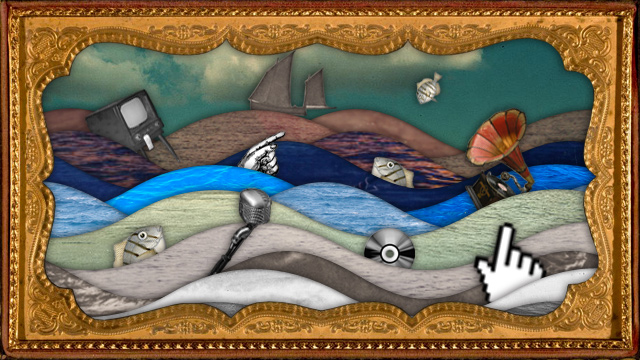Genealogy, communication and somatic culture
DOI:
https://doi.org/10.15448/1980-3729.2013.1.13640Keywords:
Genealogical method, Anti-metaphysical philosophy, Midia, Modes of subjetivation, Somatic culture.Abstract
This article investigates certain anti-metaphysical procedures inherent to the genealogical method proposed by Nietzsche and developped by Foucault and Jonathan Crary in order to emphasize its productive application in the field of Theory of Communication. Initially it stresses how genealogy may enrich studies in this area, specially as a means to overcome certain analytical constraints such as: the metaphysics of origin, the belief in the subject as an agent, and the habit of establishing cause-effect relations. In order to show the productivity of the method, it proposes a genealogical investigation of certain expressive changes of regimes of subjectivity in recent cultural products connected to what can be called “somatic culture”. Enriched by genealogy, Theory of Communication enlarges its scope and relevance for the understanding of cultural horizons, senses and ways of living in constant change: that is what is at stake in the article.Downloads
References
BERGSON, Henri. Matéria e memória. 3. ed. São Paulo: Martins Fontes, 2006.
BEZERRA JR, Benilton. O ocaso da interioridade e suas repercussões sobre a clínica. In: PLASTINO, Carlos Alberto (Org.). Transgressões. Rio de Janeiro: Contra Capa, 2002.
CRARY, Jonathan. Suspensions of perception (attention, spectacle, and modern culture). 2. ed. Cambridge: MIT PRESS, 2000.
FERRAZ, Maria Cristina Franco. Be stupid: marketing e palavra de ordem. In: Revista NADA, n. 16. Lisboa: maio de 2012.
______. Variações atmosféricas da atual cultura somática. In: FERRAZ, Maria Cristina Franco e BARON, Lia (Orgs.). Potências e práticas do acaso: o acaso na filosofia, na cultura e nas artes ocidentais. Rio de Janeiro: Garamond, 2012.
FOUCAULT, Michel. História da sexualidade I (a vontade de saber). 3. ed. Rio de Janeiro: Graal, 1980.
______. Microfísica do poder. 3. ed. Rio de Janeiro: Graal, 1982.
GALCHEN, Rivka. Atmospheric disturbances. Londres: Harper Perennial, 2008.
FREIRE COSTA, Jurandir. O vestígio e a aura. 5. ed. Rio de Janeiro: Garamond, 2005.
HEGEL, Georg W. Leçons sur l’histoire de la philosophie. Paris: Gallimard, 2007.
IZQUIERDO, Iván. Memória. Porto Alegre: Artmed, 2002.
MONTARDO, Sandra; PASSERINO, Liliana. Espelhos quebrados no ciberespaço. Belo Horizonte, 2008. Disponível em: http://www.compos.org.br/data/biblioteca_413.pdf. Acesso em: 20 maio 2012.
NIETZSCHE, Friedrich. Além do bem e do mal. São Paulo: Companhia das Letras, 1992.
______. Genealogia da moral. São Paulo: Companhia das Letras, 1998.
RABINOW, Paul. Antropologia da razão. Rio de Janeiro: Relume Dumará, 2002.
ROTH, Mark. The Rise of Neuronovel. n. 1, 2004. Disponível em: http://nplusonemag.com/rise-neuronovel. Acesso em: 20 maio 2012.
ROSE, Nikolas. The politics of life itself. Princeton: Princeton University Press, 2007.
Downloads
Published
How to Cite
Issue
Section
License
Copyright
The submission of originals to Revista Famecos implies the transfer by the authors of the right for publication. Authors retain copyright and grant the journal right of first publication. If the authors wish to include the same data into another publication, they must cite Revista Famecos as the site of original publication.
Creative Commons License
Except where otherwise specified, material published in this journal is licensed under a Creative Commons Attribution 4.0 International license, which allows unrestricted use, distribution and reproduction in any medium, provided the original publication is correctly cited.






